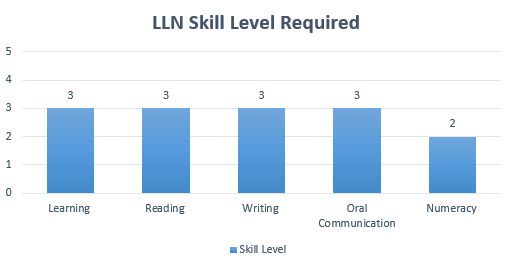Underage drinking occurs across the world, and Australia is no exception. In fact, a 2017 study by the Cancer Council Victoria found that 13 percent of 17-year-olds and 9 percent of 16-year-olds consumed 5 or more drinks on at least one day in the week prior to the survey.
While this number is at one of the lowest points it’s been since the Cancer Council Victoria survey began in 1984, it still demonstrates the need for further education and awareness on underage drinking.
In this blog, we take a look at statistics regarding teenagers drinking in Australia. We’ll also take a look at the effects of alcohol on the teenage brain, and what this means for your teen’s ability to make safe decisions while drinking.
Is underage drinking illegal?
Yes, it is illegal to buy drink or consume alcohol if you are under 18 years old. If people are caught buying or supplying alcohol to minors, they can face fines. Fines also apply to licensed establishments that are found serving alcohol to anyone underage. A responsible service of alcohol (RSA) certificate provides education on how and when to check IDs. If you work in a licensed venue, you will be required to obtain an RSA from an RTO accredited provider such as Express Online Training. This shows that you have the knowledge and skills to refuse service to intoxicated or underage customers.
Underage drinking statistics
There are many statistics surrounding teens and alcohol. According to the Young Australians’ Alcohol Reporting System (YAARS): National Report 2016/17, of the surveyed young Australians aged 14–19 years who are drinking at risky levels, 83% stated they had been injured as a result of that drinking in the past year.
In 2021, the Growing Up in Australia: The Longitudinal Study of Australian Children (LSAC) study stated 18 percent of teens aged 16 and 17 were permitted to take alcohol to parties or social events. Following on from this, teens who were allowed to drink at home were more likely to have experienced alcohol-related harm (23 percent) than those without permission (17 percent).
How does alcohol affect a teenager?
The teenage brain is still developing, which means that it can be more susceptible to the harmful effects of alcohol than the adult brain. The effects of teenage drinking on the brain can include interference with brain development. The Victorian Government says young people below the age of 15 are particularly at risk to this. The parts of the brain that are still undergoing large changes during teenage years include the hippocampus and the frontal lobe. These areas tend to correlate with impulse control, motivation, and addiction.
Excessive alcohol consumption among young people has been associated with a number of long-term problems, such as addiction, mental health issues and impaired neurological development. Excessive alcohol consumption can also interfere with the body’s ability to absorb vitamin B, which isn’t great news for growing brains.
Underage drinkers are also particularly susceptible to short term harms such as poisoning and even death due to alcohol poisoning. Alcohol can also lead to risky behaviour, such as unprotected sex, which can result in unwanted pregnancies and sexually transmitted infections (STIs).
What can be done?
The issue of underage drinking is a complex one and there is no one-size-fits-all solution. However, parents can play an important role in educating their children about the dangers of alcohol, and helping them to develop healthy attitudes towards drinking.
According to the Victorian Government, “the safest level of alcohol drinking for young people is not drinking”. However, it’s up to a teen’s parents/caregivers to decide the rules regarding the child’s alcohol consumption. While it may not always be possible to police teens when they are out of the house, having open and honest communication can encourage them to make good decisions.
There are a number of things that parents and caregivers can do to help their teenagers drink responsibly. These include:
- Setting rules about drinking and sticking to them. This includes rules about how much and when teenagers can drink.
- Talking to your teen about the risks associated with drinking, and what could happen if they drink too much.
- Making sure that there is always a responsible adult around when your teenager is drinking. This adult should be prepared to make sure everyone is safe and to deal with any problems that may arise.
- Encouraging your teen to drink in moderation, if they must drink.
- Getting involved in their lives and knowing who they are spending time with.
- Ensuring that your teenager doesn’t drink and drive.
- Leading by example, and showing them healthy, positive attitudes towards alcohol from an early age.
Express Online Training offers a Responsible Service of Alcohol (RSA) certificate which provides education on how and when to check for identification for those working within bottle shops and licensed venues. We are a Nationally Registered Training organisation, and provide resources for you to complete your RSA online and at your own pace.



